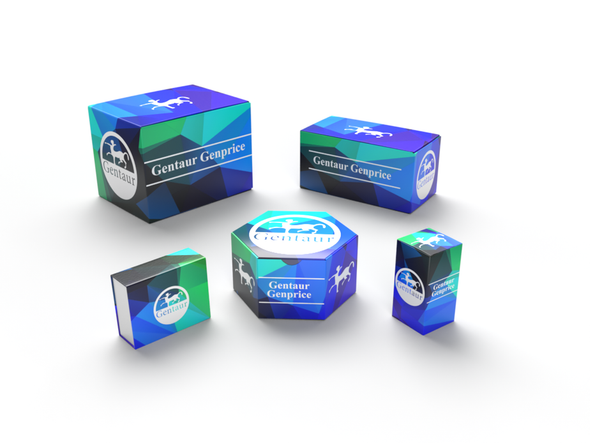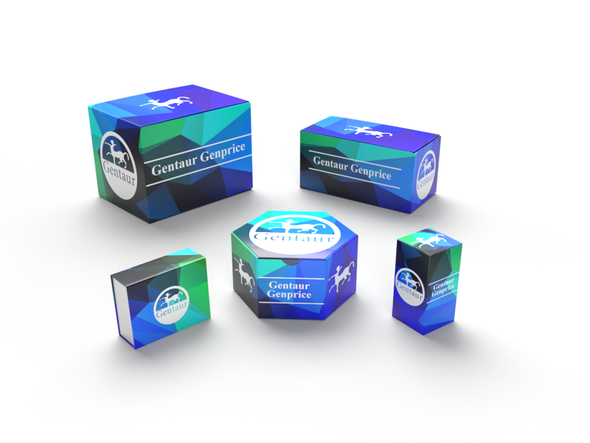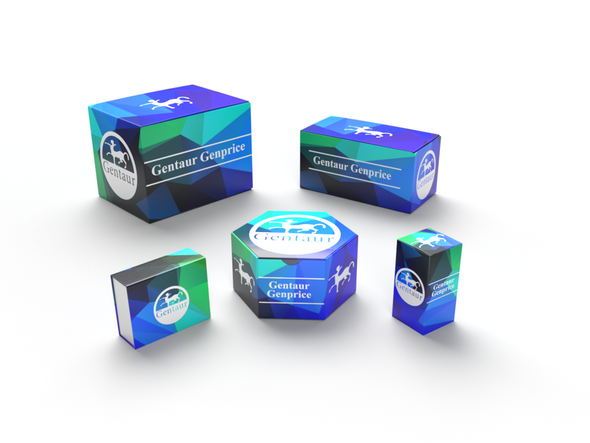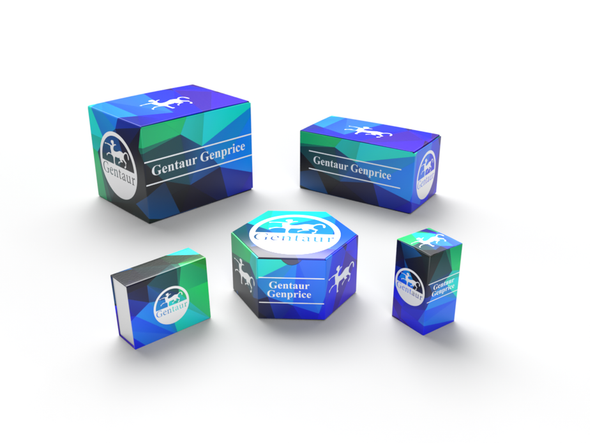Description
Rabbit Anti-Human Leptin Antibody | 102-PA135S/102-PA135 | Gentaur UK, US & Europe Distribution
Species: Anti-Human
Host / biotech: Rabbit
Comment: N/A
Label: N/A
Clone / Antibody feature: Rabbit IgG
Subcategory: Polyclonal Antibody
Category: Antibody
Synonyms: LEP; OB; OBS
Isotype: N/A
Application: WB
Detection Range: Western Blot: Use 1-5 µg/ml
Species Reactivity/Cross reactivity: Human
Antigen: Recombinant human Leptin (RT #400-019)
Description: Obesity is linked to increased incidence of breast cancer. The precise causes and mechanisms of these morbid relationships are unknown. However, accumulating evidence would suggest that leptin’s pro-angiogenic effects in cancer play an essential role in the disease. Leptin, the main adipokine secreted by adipose tissue, is also abnormally expressed together with its receptor (OB-R) by breast cancer cells. Leptin induces proliferation and angiogenic differentiation of endothelial cells upregulates VEGF/VEGFR-2 and transactivates VEGFR-2 independent of VEGF. Leptin induces two angiogenic factors: IL-1 and Notch that can increase VEGF expression. Additionally, leptin induces the secretion and synthesis of proteases and adhesion molecules needed for the development of angiogenesis. Leptin’s paracrine actions can further affect stromal cells and tumor associated macrophages, which express OB-R and secrete VEGF and IL-1, respectively. A complex crosstalk between Leptin, Notch and IL-1 (NILCO) that induces VEGF/VEGFR-2 is found in breast cancer. Leptin actions in tumor angiogenesis could amplify, be redundant and/or compensatory to VEGF signaling. Current failure of breast cancer anti-angiogenic therapies emphasizes the necessity of targeting the contribution of other pro-angiogenic factors in breast cancer. Leptin’s impact on tumor angiogenesis could be a novel target for breast cancer, especially in obese patients. However, more research is needed to establish the importance of leptin in tumor angiogenesis.
Purity Confirmation: N/A
Endotoxin: N/A
Formulation: lyophilized
Storage Handling Stability: The lyophilized antibody is stable for at least 2 years at -20°C. After sterile reconstitution the antibody is stable at 2-8°C for up to 6 months. Frozen aliquots are stable for at least 6 months when stored at -20°C. Addition of a carrier protein or 50% glycerol is recommended for frozen aliquots.
Reconstituation: Centrifuge vial prior to opening. Reconstitute in sterile water to a concentration of 0.1-1.0 mg/ml.
Molecular Weight: N/A
Lenght (aa): N/A
Protein Sequence: N/A
NCBI Gene ID: 3952






